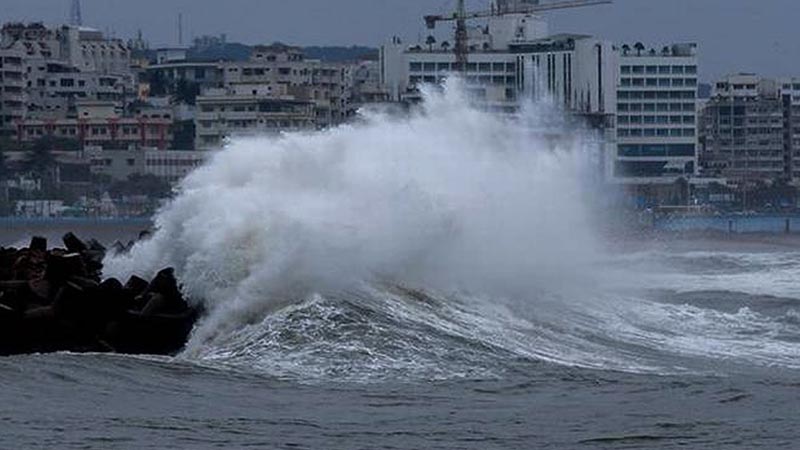Bangladesh global leader in fighting climate change

Bangladesh is well recognized as a global leader in mitigating the adverse impacts of climate change (CC). As the global leader in addressing the challenges of CC the government has already allocated $300 million through Bangladesh Climate Change Trust Fund (BCCTF) to execute different adaptation programmes. The appreciation also includes Prime Minister Sheikh Hasina’s farsighted visions and her political will in fighting climate change.
Facing the CC vulnerabilities Bangladesh has been the first country in the world to outline a comprehensive strategy to mitigate and adapt to the effects of the global warming. The allocation of the trust fund from the government’s own exchequer reflects the seriousness of government and the political will in mitigating the CC vulnerabilities.
Many of the world’s leading environmentalists term Prime Minister Sheikh Hasina’s vision for mitigating the CC effects as ‘devoted leader’. She sincerely feels for the people of the affected communities, remarked the experts. Dr Atiq Rahman, a leading environmentalist told Bangladesh Post, “Bangladesh has been a pioneer in climate adaptation in the world. Dhaka is now well known as the ‘Climate Adaptation Capital’ of the world.”
Rahman, who is well-known worldwide for his pioneering role and contribution to environment and nature conservation, said, “The leadership of the government, scientists and research community has developed policies, implemented projects and adopted the good practices which are now globally recognized.” Referring to the meeting (Wednesday) of the Global Commission on Adaptation (GCA) being hosted by Bangladesh he said that the meeting represents the global recognition once again.
Bangladesh, already being the front-runner in addressing the CC now seeks to accelerate climate adaptation solutions and also address obstacles that are slowing adaptation strategies. Bangladesh played a pioneering role to develop a strategy to adopt the Bangladesh Climate Change Strategy and Action Plan (BCCSAP) in 2009.
Earlier, the country developed the National Adaptation Programme of Action (NAPA) in 2005 under the United Nations Framework Convention on Climate Change (UNFCCC). NAPA outlines 37 programmes under 6 themes. The themes are: food security, social protection and health, comprehensive disaster management, infrastructure development, research and knowledge management, mitigation and low carbon development and capacity building and institutional strengthening.
Bangladesh Climate Change Resilience Fund (BCCRF) has also been established with the assistance of development partners which is another avenue for CC mitigation challenges. Dr Haseeb Md Irfanullah, a leading environmentalist while sharing his views on the climate change issues told Bangladesh Post, “The role Bangladesh played in formulating mitigation and adaptation strategies is indeed groundbreaking. Bangladesh being one of the worst affected countries by the global warming did not just sit back but instead allocated funds (BCCTF) from its own exchequer to pay for the mitigation and adaptation programmes.”
“Such gesture can only come from quality leadership. Bangladesh taking the front seat in climate change issues clearly indicates the seriousness of the government,” he said. The leadership of the government in climate mitigation plans also shows the world how the country is playing lead roles in some key areas. For instance, Bangladesh has topped the global list of countries that have installed the highest number of Solar Home Systems (SHS).
Up to January 2019, about 4.13 million SHS have been installed under the program of promoting renewable energy. SHS are promoted in the remote areas where electrification through gird expansion is challenging and costly. The solar system has ensured supply of solar electricity to 18 million people or 12 percent of the country’s total population of about 160 million.
Environment scientists predict that Bangladesh would experience some of the worst episodes of climate change.It is projected that some regions in Bangladesh will experience increased rainfall while in some other regions extreme droughts may be experienced. Monsoon rainfall often causes devastating floods. Study also shows that rainfall increased during monsoon period (June-July-August) and decreased significantly in winter months (December-January).
Researchers of BUET show that drought prone areas are getting less rainfall in last 10 years from 1996 to 2005 which clearly indicate the vulnerabilities of CC. Salinity intrusion has already affected the country. Salt water from the Bay of Bengal is reported to have penetrated some 100 km more inland along tributary channels during the dry season. Data of Department of Environment and Forests (DoEF) shows that 83,000 million hectares of arable land is affected by varying degree of salinity which could threaten food security in the coastal regions.
There is an increasing trend of temperature observed for last three decades. Data shows that the country will observe average temperature increase of 1.0 Celsius by 2030 and 1.4 Celsius by 2050 considering 1990 as base year. Confronting the frequent natural disasters, degradation of forest areas and wetlands, and agricultural land, preventing domestic migration and addressing the issues of ‘climate refugees’ are some of the key challenges in finding solutions to climate impacts.
Meanwhile, leaders of different international organisations met in Dhaka on Tuesday to discuss on climate change issues, especially adaptation, and generate a report through recommendations. The meeting held at a local city hotel on Tuesday was convened ahead of a two-day international event — "Dhaka Meeting of the Global Commission on Adaptation (GCA)" that begins today (Wednesday).
The meeting would be attended by President of the Marshal Islands, Dr Hilda Heine, former secretary general of the UN, Ban Ki-Moon, CEO of the World Bank, Kristalina Georgieva, GCA representatives and local experts. Prime Minister Sheikh Hasina will inaugurate the key part of the event titled at Hotel InterContinental.
A report on climate change adaptation by the Global Commission on Adaptation (GCA) and different mechanisms to face the adverse effects of climate change will be discussed at the meeting, Foreign Minister AK Abdul Momen told a press conference at his office on Tuesday. Bangladesh will showcase its good practices on climate change adaption initiatives like water resilient crops, home solar system and climate trust fund, the minister said.




